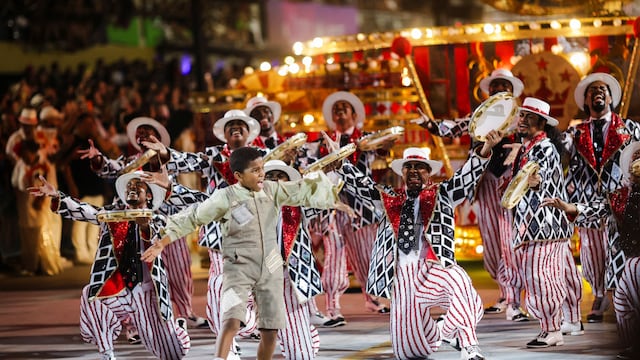The holiday is believed to date back to Pagan customs and traditions, but celebrations have been shared by many other cultures across thousands of years.

History of Mardi Gras: The origins of Carnival and how it’s celebrated around the world

This week cities around the world will become splashed with color as Mardi Gras celebrations kick into action. The date for Mardi Gras this year is Tuesday, Feb. 17 and it will be marked with huge celebrations in New Orleans, Rio de Janeiro and Venice, amongst countless other cities.
The origins of Mardi Gras are hotly contested and are most likely the result of a convergence of various festivals and customs. In recent centuries the festival has been established as a Christian holiday to mark the start of Lent. However the history of Mardi Gras is much more varied and is thought to date back thousands of years.
Shrove Tuesday, also known as Pancake Day or Mardi Gras, is observed today in many Christian countries worldwide 🥞 The tradition of eating pancakes comes from using up rich foods before the Lenten fast on Ash Wednesday, with the first English pancake recipe dating to 1439! pic.twitter.com/q512tj3XVx
— History Hit💥 (@HistoryHit) February 13, 2024
How did Mardi Gras start?
Mardi Gras takes place in the early spring, at the start of the period of Lent observed by Christians. However, thousands of years ago it is thought to have originated from a tradition of Pagan festivals that mark the beginning of spring and celebrate fertility.
Comparisons have been drawn between Mardi Gras and the Roman festival Lupercalia, which was celebrated on 15 February in ancient Rome. That festival was a day of bloody celebration complete with animal sacrifices, but was also imbued with ideas of fertility.
These Pagan festivals became longstanding traditions with huge significance in local custom. They were deemed so important that, upon the arrival of Christianity to Rome, religious leaders decided to involve the ancient traditions in their new religion.
Given the importance of spring to the Christian faith, those traditional festivals were incorporated into a celebration of life and rebirth that heralded the start of Lent. Different branches of Christianity mark this day in different ways and Shrove Tuesday, Carnival, and Ash Wednesday are all related to the Mardi Gras celebration.
What does the name ‘Mardi Gras’ mean?
The original Pagan celebrations were not known as Mardi Gras and that name was only added when the festival reached France. The name translates as ‘Fat Tuesday’ in French due to the excessive nature of the holiday.
The period of Lent is often observed with an act of sacrifice to remember the 40 days that Jesus Christ spent fasting in the desert. For a period the Catholic Church is thought to have banned the consumption of meats and rich foods during Lent, so Mardi Gras became an opportunity for a final lavish blow-out. Hence, ‘Fat Tuesday’.
Enjoy Shrove Tuesday folks, and good luck to everyone embarking on the journey towards Easter - a wiser person than me posted earlier, “Sometimes by saying no to something physical we learn how to say a deeper yes to the sacred”. We’ll need that strength for the fight ahead. pic.twitter.com/ZRzLx9PQmv
— Stuart (@sonofwessex) February 17, 2026
The celebration is believed to have landed in the Americas in 1699. French-Canadian explorer Pierre Le Moyne d’Oberville settled in the area that is now New Orleans and the tradition took root there. The city of New Orleans hosted its first Mardi Gras parade in 1837 and it now boasts one of the biggest such celebrations in the world.
Related stories
Get your game on! Whether you’re into NFL touchdowns, NBA buzzer-beaters, world-class soccer goals, or MLB home runs, our app has it all.
Dive into live coverage, expert insights, breaking news, exclusive videos, and more – plus, stay updated on the latest in current affairs and entertainment. Download now for all-access coverage, right at your fingertips – anytime, anywhere


Complete your personal details to comment